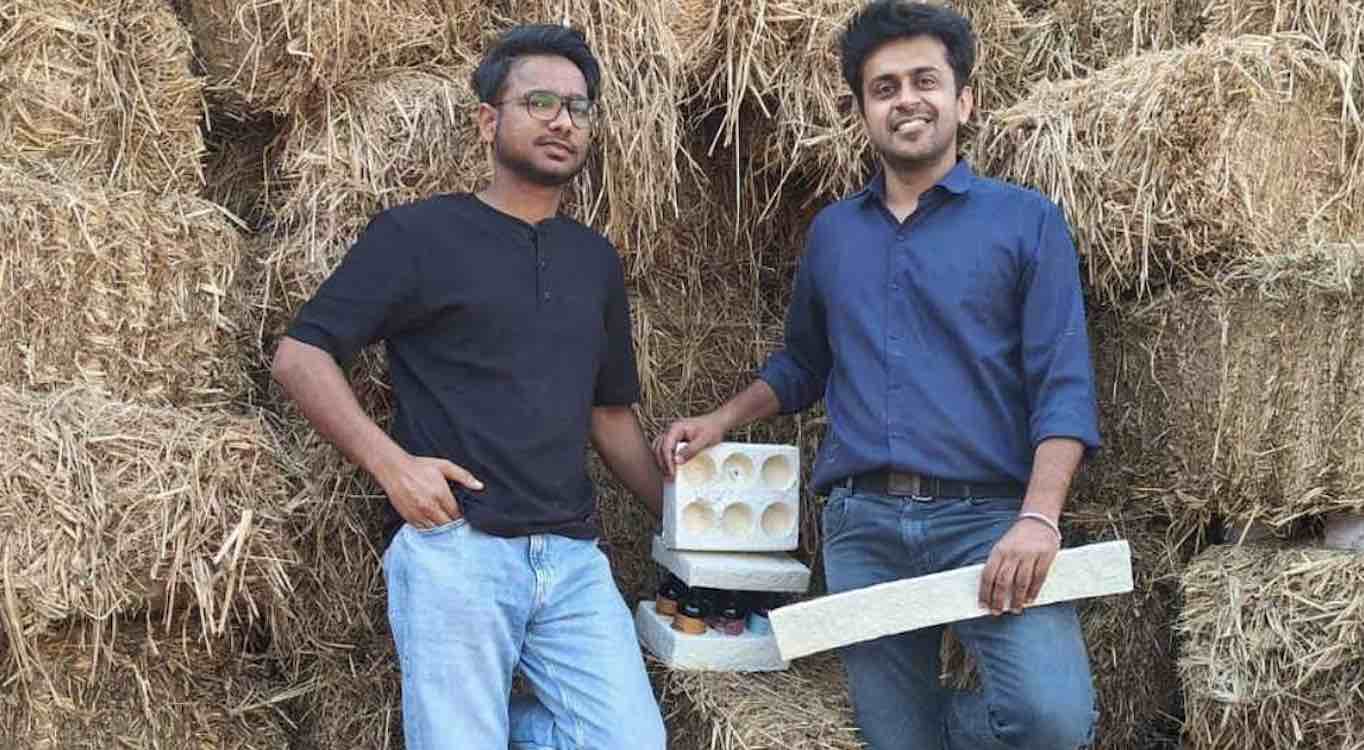
They say wisdom oft comes from the mouths of babes, and Mr. Arpit Dhupar was at first left scratching his head when his young nephew drew a picture of the world with a grey sky.
Everything else was normal, green grass, yellow sun, white and brown mountains; why was the sky grey? It dawned on him that his nephew was drawing the sky as he saw it every year when the rice stubble was burned: grey.
“We shouldn’t live in a world where we have to explain to kids that the sky should be painted blue. It should be a given,” he told The Better India.
So he launched a new business venture called Dharaksha Ecosystems in order to tackle the rice stubble problem. Essentially, the farmers need it cleared off their land asap after harvest. Its high moisture content means it’s not useful for stove fuel, so they burn it in massive pyres.
In his factory, he turns 250 metric tons of rice stubble harvested from 100 acres of farmland in Punjab and Haryana into packaging, while paying the farmers a rate of $30 per acre for something they would usually burn.
Dhupar originally wanted to use mushrooms to rapidly biodegrade baled stacks of rice stubble, but found that the fungus left behind a metabolite that wasn’t biodegradable—in other words, he’d have to create a waste problem to solve a waste problem.
Over time he realized that the filaments that make up the subterranean structure of the mushrooms, called mycelium, were acting as a sort of binding agent, turning the baled stubble into something durable.
“This wasn’t a waste material but could be a usable one,” said Dhupar. “Through bio-fabrication, we could use the stubble waste to create a material similar to [polystyrene], but one that was biodegradable.”
There are a lot of these sorts of sustainable packaging ideas floating around, invented by people who rarely have experience in markets and commerce. This is not the case with Dhupar’s stubble packaging.
He has already prevented over half a million pounds of polystyrene from entering landfills since launching his product, which has numerous, exceptional properties.
Baked in the oven, the mycelium-bound stubble becomes hard and fire-retardent, allowing it to be laser engraved. Further, the product can tolerate high moisture content and is also anti-static.
They sell around 20 metric tons of their product every month, making about $30.5 thousand dollars per annum, mostly by selling to glassware companies.




